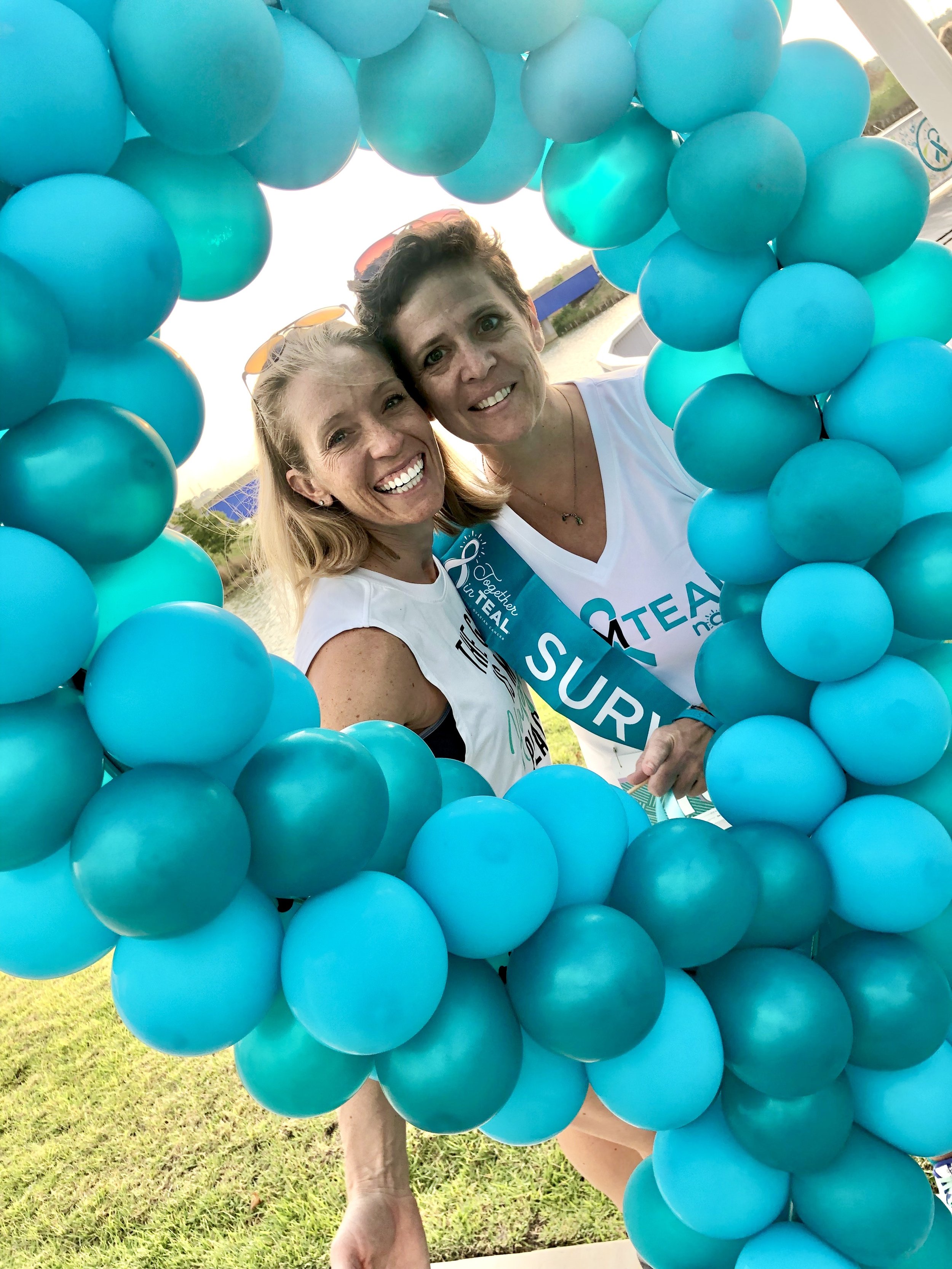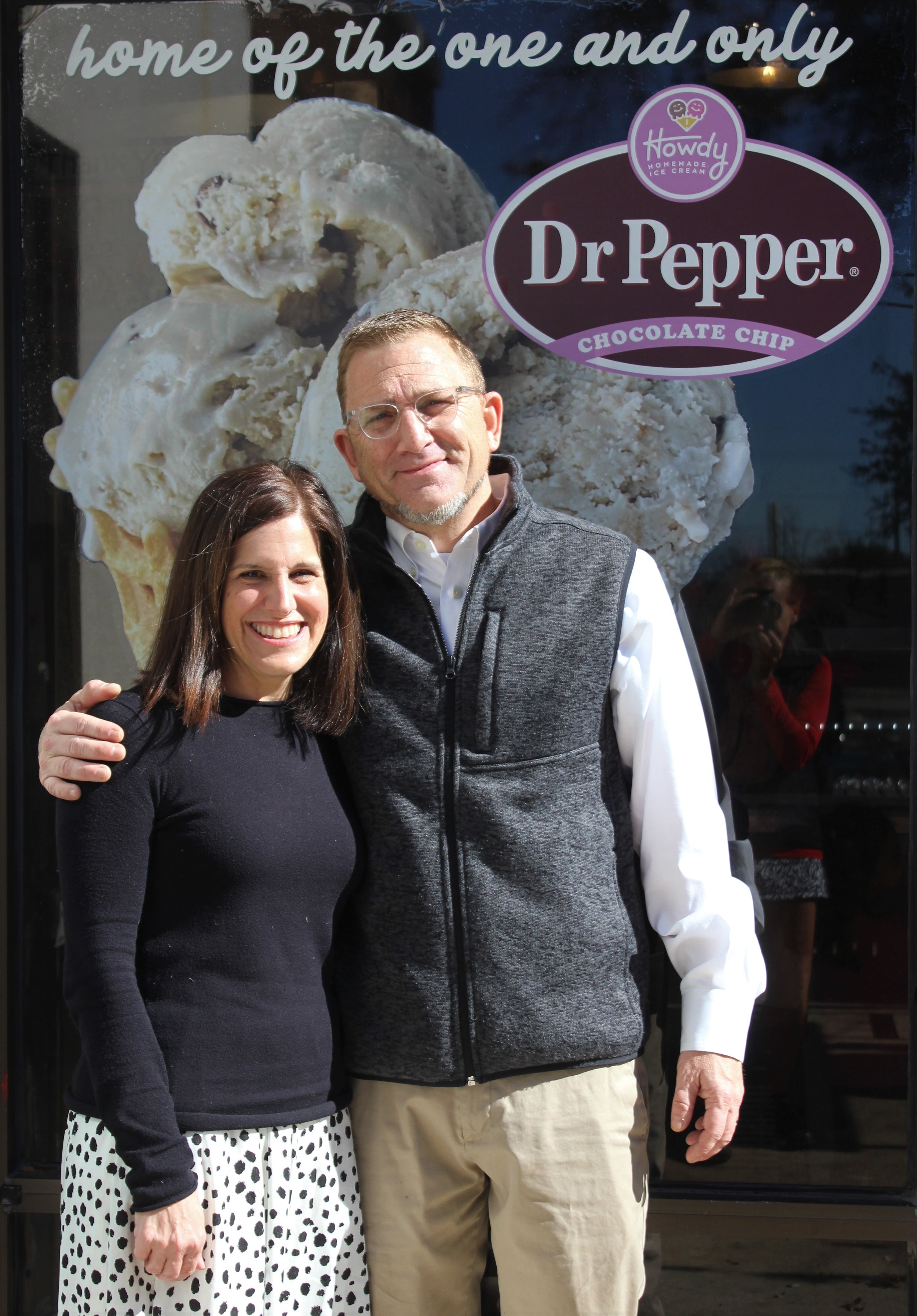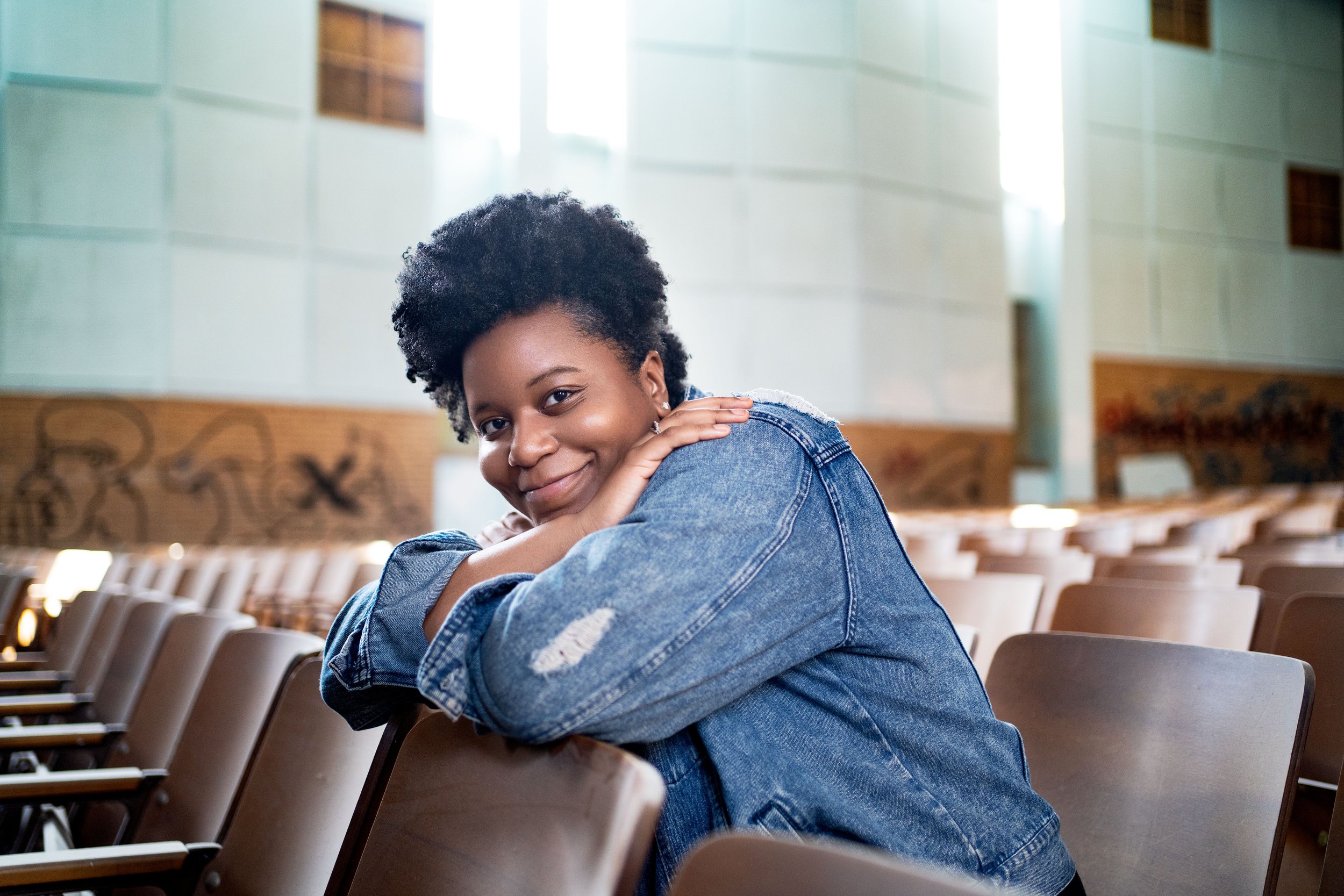Interview by Mary Martin. Photos by Jack Helms.
In the face of pandemic, there are plenty of things that are not cancelled, including Pride. We spoke with Scott Martin, the Behavioral Health Director for Resource Center, to talk about Pride during COVID-19, but also how Resource Center is upholding the fight for human rights across all vulnerable populations while caring for heightened mental health concerns.
Scott Martin, LPC-S is a Texas State Licensed Professional Counselor and Texas State Board-Certified Supervisor. In his role at Resource Center in Dallas, Texas, Scott manages the daily operations for the outpatient counseling center, and serves as Clinical Supervisor for SMU Masters Level Counseling students at the Resource Center Field Site location. Scott is a current Advisory Board Member for SMU School of Education and Human Development in Counseling, a member of American Counseling Association (ACA), Texas Counseling Association (TCA), and Texas Association for Gay, Lesbian, Bisexual, and Transgender Issues in Counseling (TALGBTIC).
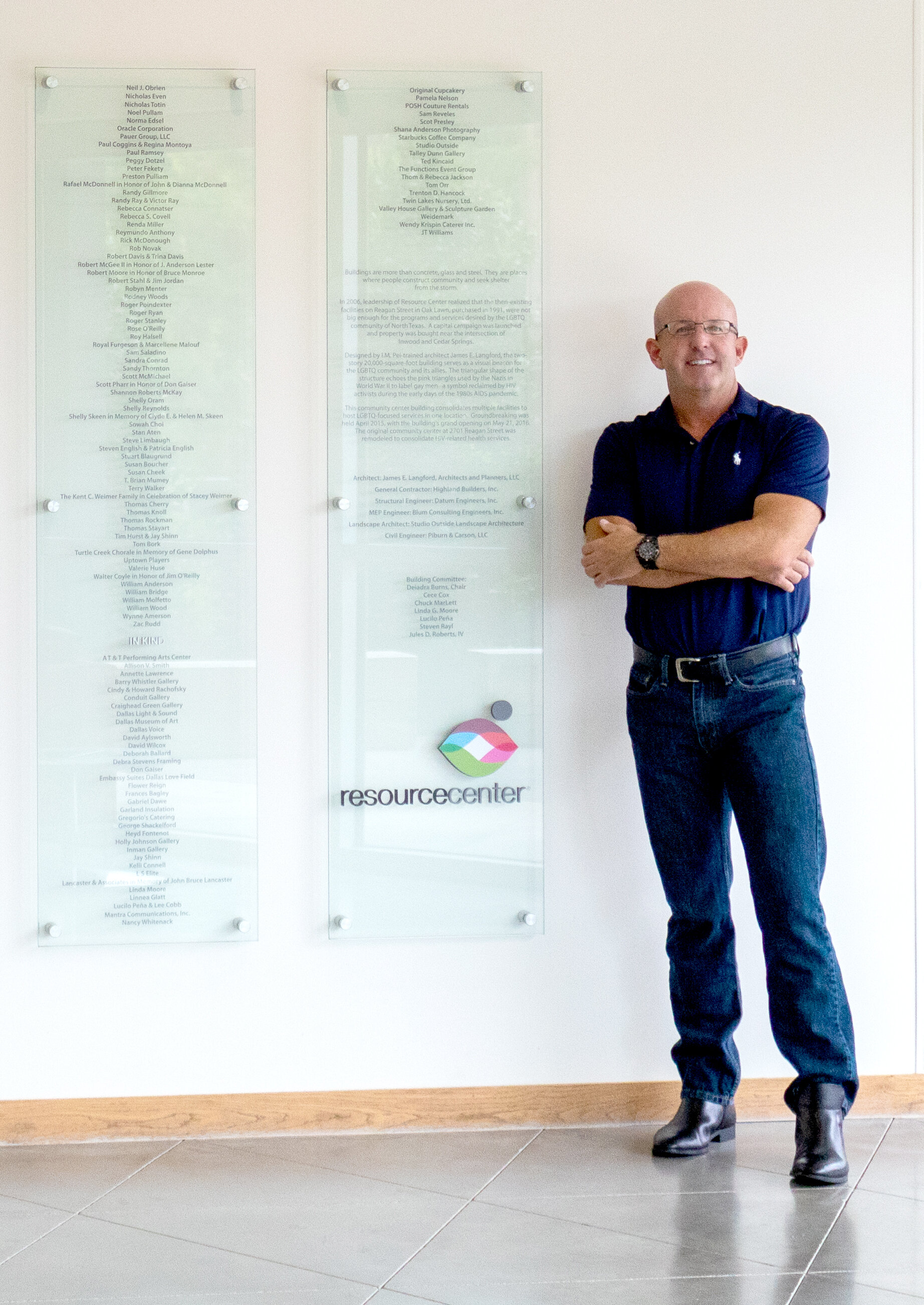
What does it look like to celebrate PRIDE 50 years later during the COVID-19 pandemic, social distancing, and while also sustaining the momentum to fight for human rights?
Dallas Pride 2020 will not be an in-person social gathering this year but, instead, we will participate in a virtual celebration “The Pride of Texas” on July 25-26th. The COVID-19 pandemic has forced the community apart but has marched forward virtually while bringing people together with a state, national and global reach with its annual parade. The history of Pride and the protest effects have evolved from the capacity of being seen…so we must march on. Pride is a protest evolving out of the 1969 New York Police raid at the Stonewall Inn, led by a group of transgender women of color.
Over 50 years after the first Pride protest, the Supreme Court’s landmark ruling on LGBTQ employment non-discrimination protections will allow less fear around overall workplace discrimination, and for some the fear and worry about losing your job for just being who you are. Take a moment to reflect on taking 50 years of protest for a basic human right! Another sobering fact is there are over 700 other countries ahead of the US on basic human rights. So, it is very important to continue to protest inequality, fight for the Equality Act, and continue our missions so we are not politically pushed aside or forgotten about during these uncertain times as we support and surround ourselves in solidarity with other human rights protest and events taking place around Dallas and the country.
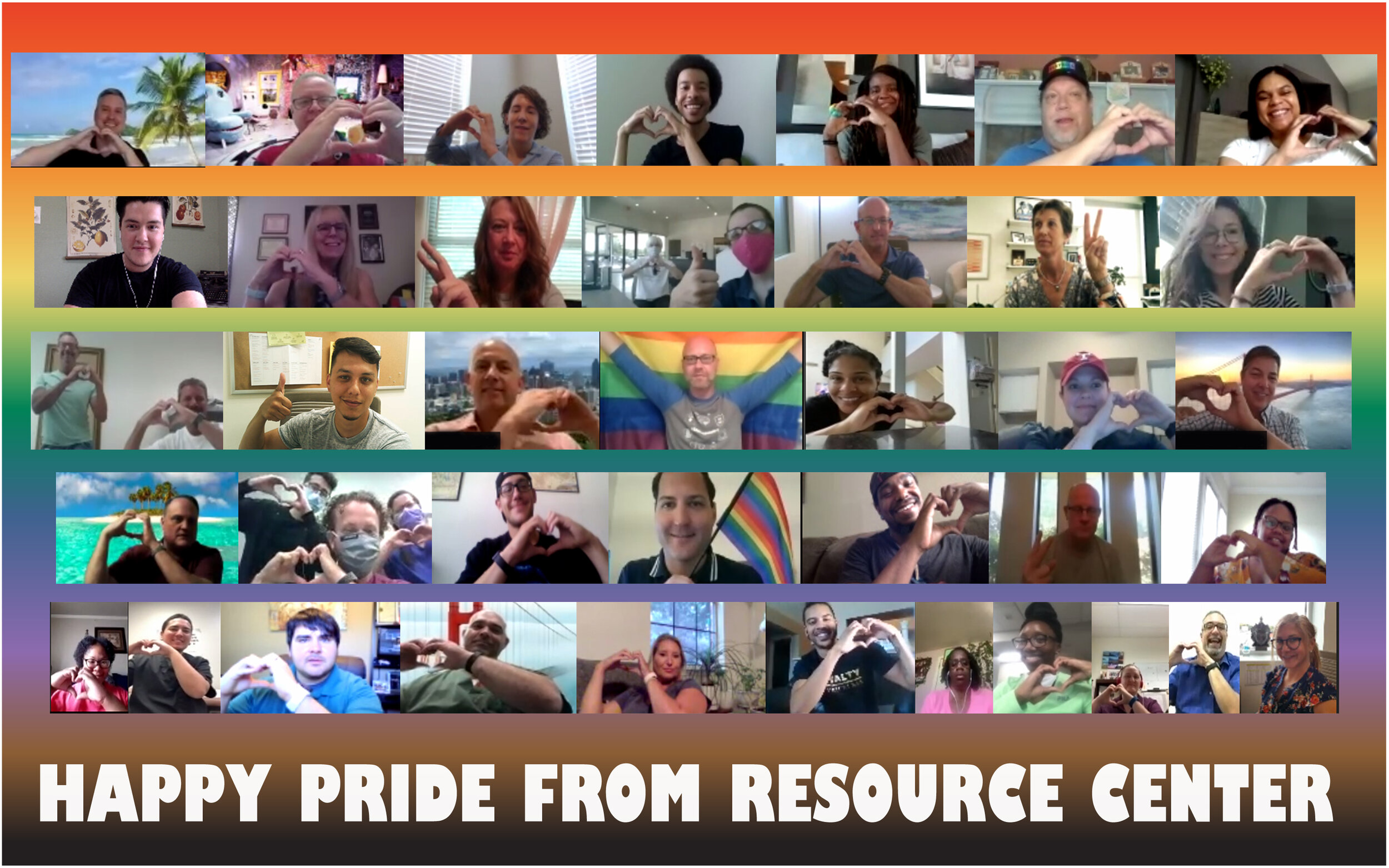
>
“The events that have taken place around the country should serve as a call to action for all of us. We stand in solidarity with the millions who have come together to say enough is enough. Black lives matter.”
COVID-19 has had overall impact on employment and mental health but is particularly hard on the LGBTQ Community. LGBTQ people are more likely than other groups to have a chronic illness, be in self-isolation, employment security worries, and higher rates of homelessness. Also, 17% of LGBTQ people have no insurance and limited or no access to affirmative healthcare.
COVID-19 is affecting vulnerable populations at higher rates, including LGBTQ people of color who often also grapple with additional barriers to receiving healthcare, obtaining stable employment, and accessing social services.
How has COVID-19 impacted the mental health of LGBTQ youth?
Resource Center’s Youth First has a long history of offering a safe place for LGBTQ youth to meet, gather and socialize. Youth First is the only LGBTQ-focused program in North Texas that addresses the challenges LGBTQ teens face at home, school, and in the community.
We have pivoted to virtual programming, including social and wellness activities, video chat groups, on-line games, creative expression activities, gender-identity discussions, watch parties, and tele-health mental health counseling.
>
“We cannot yet see how this pandemic will play out in the long run. What we can do is continue to come up with compassionate and creative solutions to keep us all connected, and we will do that.”
Although youth are estimated among the lowest mortality rates of COVID-19, they are potentially vulnerable to other impacts including isolation due to lack of socialization, affirmative support in the home, and mental health issues of anxiety, depression and higher risk for suicide. Social distancing or physical distancing decreases LGBTQ youths’ access to positive social interactions. For some LGBTQ youth, there is an increase in negative home interactions due to non-affirmative, homophobic, or transphobic family members. Youth who find themselves in an environment that does not affirm their identity, places the youth at risk for increased mental health concerns, and possibly at risk for victimization or abuse. Also, not all youth have access to virtual programming and when they do, at times the home environment does not allow for the private, confidential space necessary for the LGBTQ youth to be themselves. Unsupportive home environments where they face family rejection can result in increased anxiety and dysphoria, particularly among nonbinary and/or transgender youth. Maintaining safety sometimes means hiding your authenticity.
HRC Foundation’s 2018 LGBTQ Youth Report has documented how often LGBTQ youth face family rejection, as 67% of youth reported that their family makes negative comments about LGBTQ people. Also, due to widespread school closures because of COVID-19, LGBTQ youth are at risk of accessing basic needs such as learning and nutrition provided by schools. The National Alliance on Mental Illness (NAMI) estimates 47.7% of LGBTQ youth have serious thoughts of suicide during the high school years.
We remain committed more than ever and are engaged with our youth in efforts to maintain their social connections while positively impacting their overall wellbeing, mental health, and authenticity.

What are some ways the LGBTQ community and allies can get involved with the work happening at Resource Center?
Advocacy: Resource Center’s advocacy takes many forms: from meeting with local, state, and federal lawmakers about issues impacting the LGBTQ and HIV/AIDS communities, to working with local government business and schools to make more inclusive environments.
We have spoken and marched in demonstrations and encouraged people to write letters, send e-mails and make phone calls to their elected representatives. When it comes to advocating for the LGBTQ community as well as all people impacted by HIV/AIDS, it is an important part of Resource Center’s past, present, and future.
Volunteer: Volunteering at Resource Center makes a difference in our community. While the Center employs paid staff, the mission of the Center could not be achieved without people like you. The talents, skills, time, and energy donated by our volunteers are a valued resource. Each year, more than 1,200 dedicated volunteers help Resource Center serve the lesbian, gay, bisexual, transgender, queer/questioning (LGBTQ), and HIV communities in North Texas.
Get Centered Mission Virtual Tours: Join us for an exclusive, behind-the-scenes tour highlighting the heart and soul of Resource Center. Learn about the stories behind our advocacy, community, and health programs.
Donation: Since 1983, Resource Center has provided programs of interest to LGBTQ individuals and critical assistance to people affected by HIV/AIDS. The Center is proud of its commitment to and delivery of a full continuum of services. The Center relies on the generous support of individuals like you to strengthen our communities and to provide life-changing support to people in need. Together, we improve the lives of more than 61,000 people every year. Please make your donation today. All gifts are tax-deductible in accordance with IRS guidelines.
To access additional information or participate in one of our ways to get involved, please visit myresourcecenter.org or call us at 214-521-5124.
More Good Stories
Featured
When Kathy and Larry Helm heard about The Senior Source’s 60th Birthday Diamond Dance-Off, they knew they had to put on their dancing shoes! For the Helms, this event combined two of their passions into one. Celebrating and supporting The Senior Source, a Dallas-area nonprofit that has been serving older adults for 60 years, and dancing together, which they have been doing since they were high school sweethearts. Both Kathy and Larry have chaired the board of directors of The Senior Source and have been proud supporters since 1998. It seemed only fitting they should be voted into the finals to dance on stage at Klyde Warren Park this past summer.
In 2020, more than 912,000 women were diagnosed with some form of cancer in the United States alone. During that same pandemic year, countless medical appointments were canceled while people were social distancing, and yet still each day nearly 2,500 women heard the news, “you have cancer.” There is no doubt that these words can be crushing to hear, but what’s equally crushing is the lack of tangible, encouraging support that exists to help women feel beautiful, strong or “normal” before, during and after cancer treatment.
When Tom Landis opened the doors to Howdy Homemade in 2015, he didn’t have a business plan. He had a people plan. And by creating a space where teens and adults with disabilities can find meaningful employment, he is impacting lives throughout our community and challenging business leaders to become more inclusive in their hiring practices.
Have you ever met someone with great energy and just inspired you to be a better you? Nitashia Johnson is a creator who believes by showing the love and beauty in the world it will be contagious and make an impact. She is an encourager and knows what “never give up” means. Nitashia is a multimedia artist who works in photography, video, visual arts and graphic design. Her spirit for art and teaching is abundant and the city of Dallas is fortunate to have her in the community.

